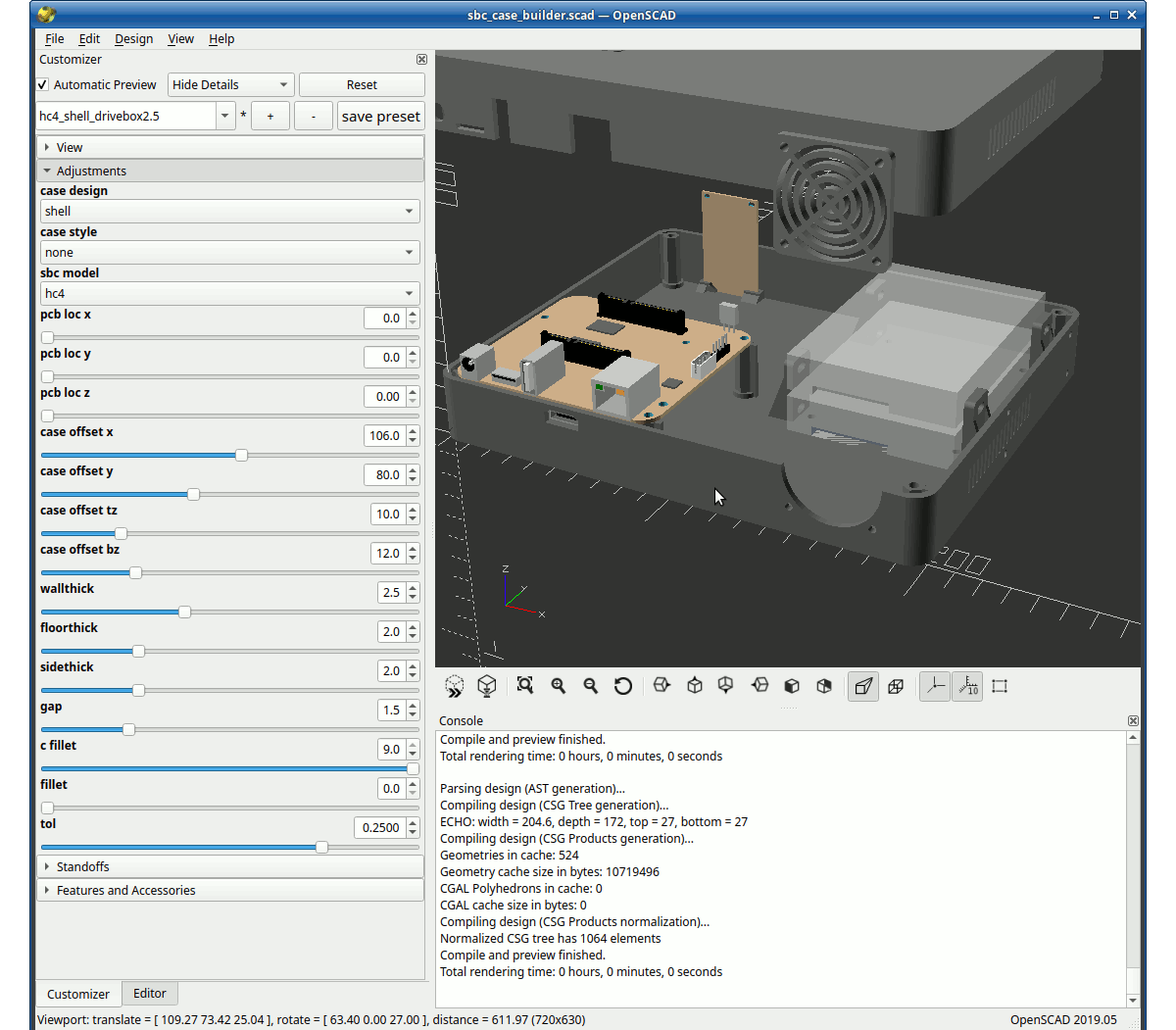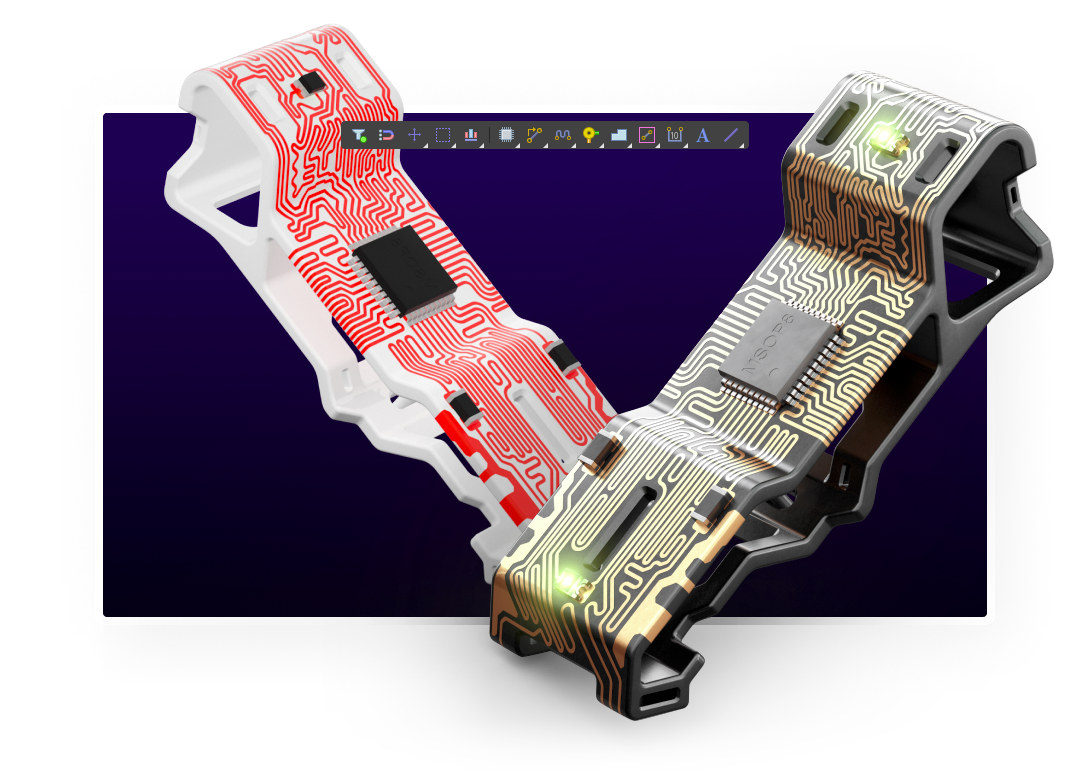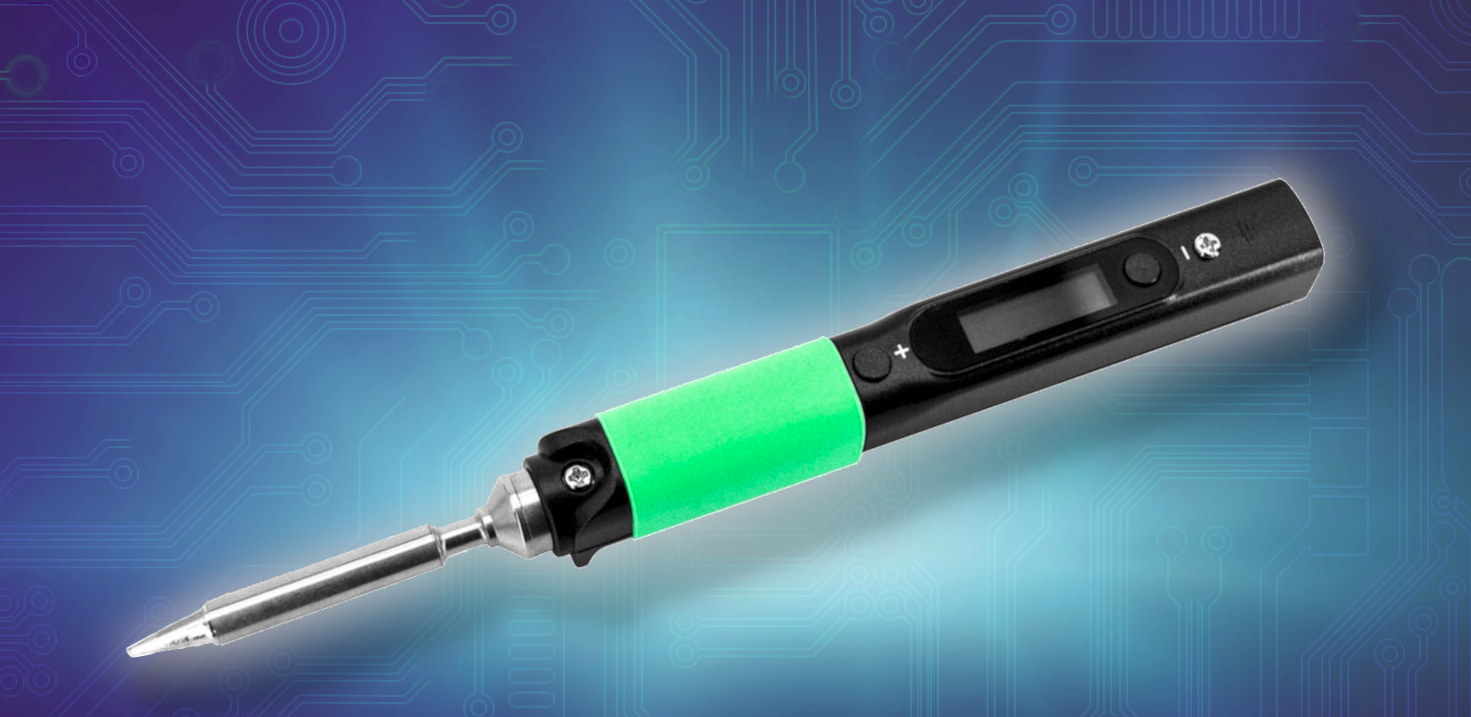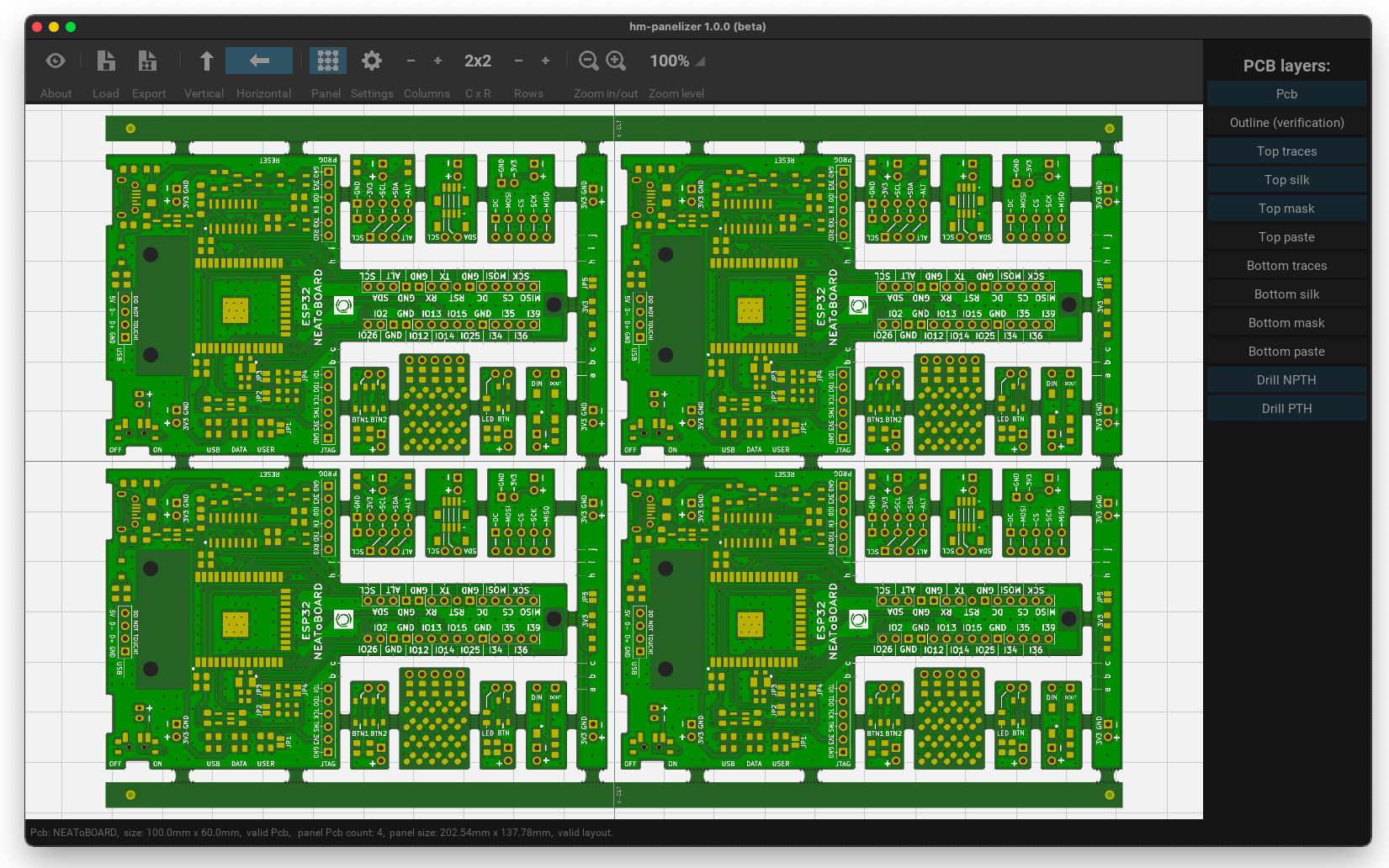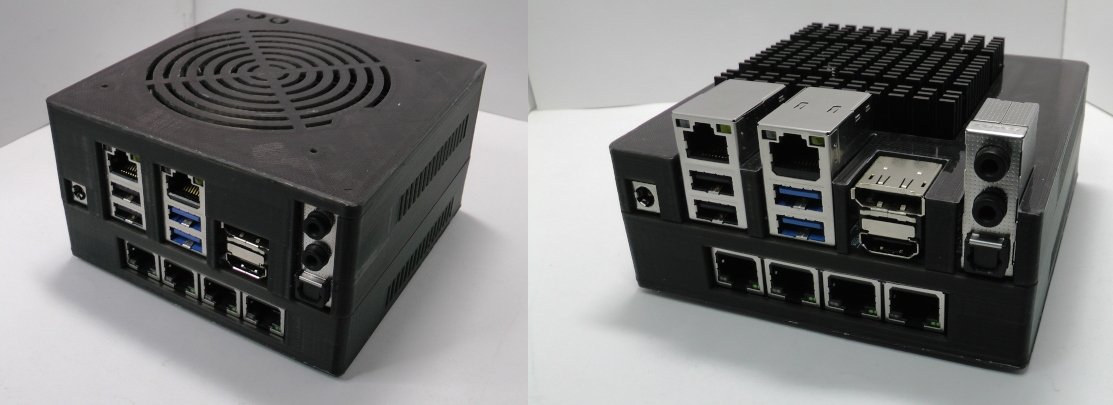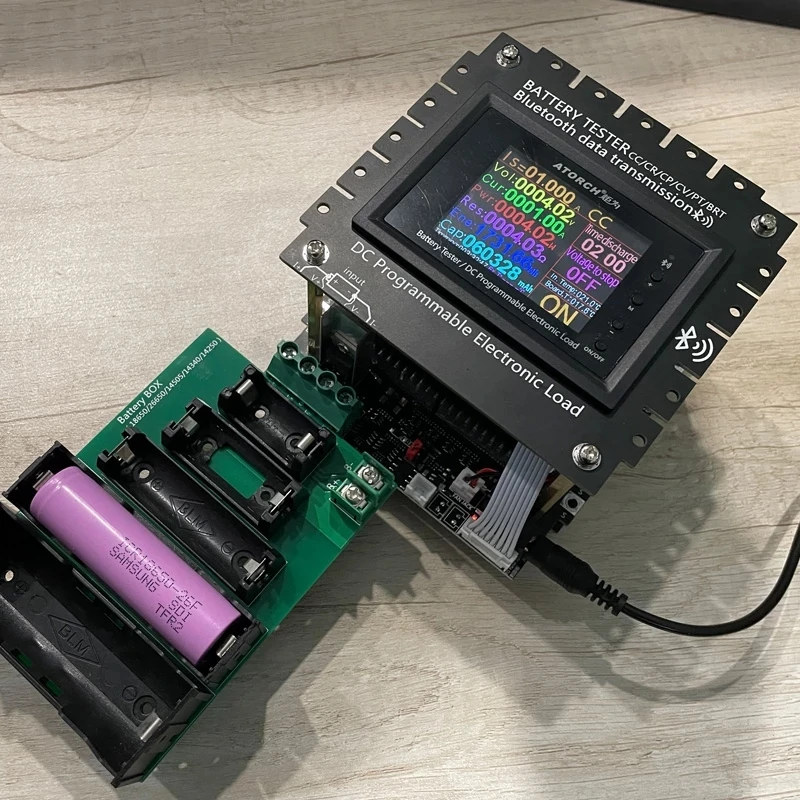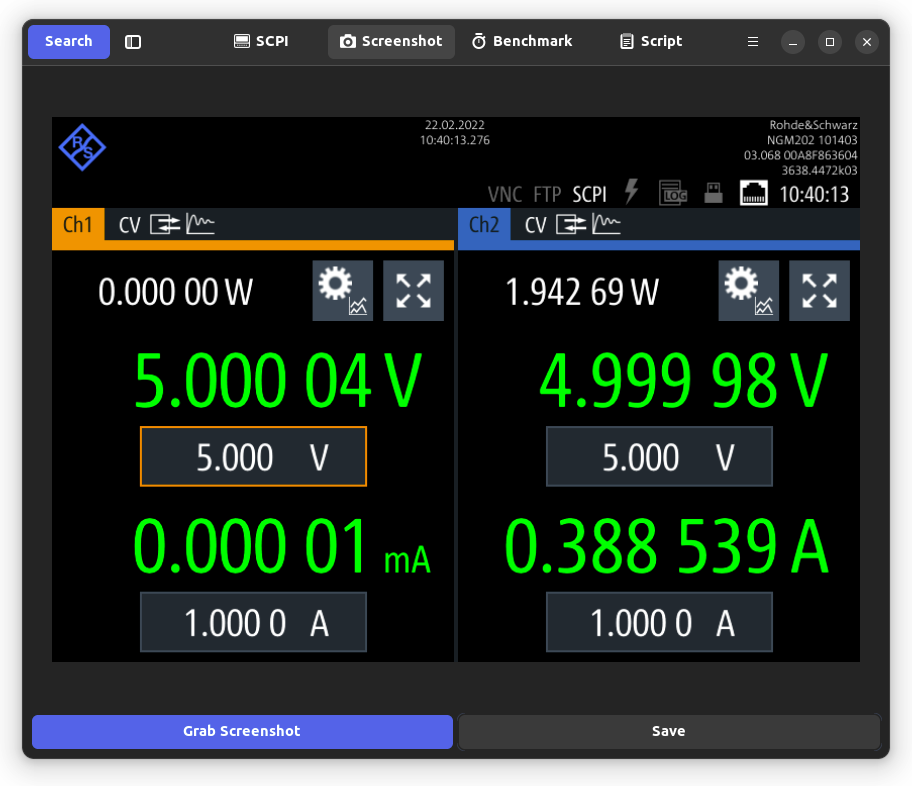SBC Case Builder 2.0 tool to create enclosures for single board computers has been released with a customizer graphical user interface, additional cases & SBCs, support for variable height standoffs, and more. We wrote about the SBC Case Builder tool to easily generate various types of 3D printable enclosures using OpenSCAD earlier this year. The SBC Model Framework used in the solution was focused on ODROID boards, and you had to type the parameters in a configuration file. SBC Case Builder 2.0 software changes that with a convenient-to-use graphical interface allowing for the dynamic adjustment of any of the case attributes. The new version of the software also supports variable height standoffs, multi-associative parametric accessory positioning, and offers 8 “base cases”, namely shell, panel, stacked, tray, round, hex, snap, and fitted. The solution works with 47 SBCs defined in the latest version of the SBC Model Framework. The following SBCs […]
Altium Designer adds 3D PCB layout tool
While we like open-source tools such as KiCAD, Altium has added a pretty cool feature to the Altium Designer program with a 3D layout tool, which as its name implies, allows the design of 3D PCBs… The new 3D layout tool relies on 3D-MID technology that combines electrical circuits with three-dimensional mechanical parts. I’m not sure who really needs this, but I have to admit the results look pretty neat. Altium explains the design process is quite similar to standard 2D PCBs, and designers would create a layout on the surface of a 3D substrate using the standard library components and with the connectivity driven by the schematic design in the same way as with a standard PCB. You can check out how it works in a video shared on Altium’s LinkedIn account. The designer would then export the files in the format required by LPKF Laser & Electronics AG’s […]
Pinecil V2 soldering iron gets BL706 Bluetooth LE RISC-V MCU, USB PD EPR support
PINE64 is about to launch the second generation Pinecil RISC-V soldering iron with the Pinecil V2 featuring a new Bouffalo Lab BL706 RISC-V microcontroller with Bluetooth LE connectivity, optimizations for higher power levels, as well as tentative support for the new USB PD EPR standard (Extended Power Range) working at up to 28V. I don’t solder every day, but when I do, I use my Pinecil soldering iron, as it’s heating super fast and does the job, and in my case, works quite better than the TS100 soldering iron. So it should come as no surprise that the Pincel is the most popular consumer hardware from the PINE64 community (after SOPine modules), and the new Pinecil V2 is a welcome upgrading building on the same design but with Bluetooth LE connectivity and a lower tip resistance. Pinecil V2 preliminary specifications: MCU – Bouffalo Lab BL706 32-bit RISC-V microcontroller @ 144 […]
Pixel Pump is an open-source, manual pick-and-place machine (Crowdfunding)
Pixel Pump is an open-source hardware vacuum pump that should be easier to use than a pair of tweezers to pick and place SMT components, and suitable for prototypes and small production runs. The system comes with a pen with five exchangeable stainless-steel nozzles to match the size of components, a foot pedal, and several tactile silicone buttons with RGB backlighting to control the unit. The button on the unit (customized parts bought from Alibaba) allows you to change operation modes, switch between high- and low-power settings, or activate reverse mode to clean your nozzle. It’s also possible to configure vacuum power and LED brightness with the buttons. The foot pedal is used to control the vacuum pump to pick up and release the components. A serviceable air filter is also integrated into the design to protect the vacuum pump and valves from debris. Robin Reiter, Pixel Pump’s designer, explains […]
hm-panelizer – A KiCad companion GUI tool for panelizing PCBs
Gerard (aka halfmarble) has released hm-panelizer open-source software allowing for a panelization of PCBs via a simple GUI interface and doubling as a Gerber file viewer. He’s mostly tested it with PCBs designed in KiCad 6.x, but it should also work with design files from other tools. Note that hm-panelizer is just a side project, and Gerard released it as an open-source project in hopes that it might be useful to users and the community will contribute to it. The project relies on kivy cross-platform library, pygame and pycairo libraries, as well as pcb-tools and pcb-tools-extension projects. There are some requirements for the utility to work on with your PCB : Use the metric system The PCB Gerber files must use Altium/Protel filename extensions The board outline gerber file (.gm1) must be present “Disable aperture macros” when exporting Gerber files (this may not be needed for simple designs and only […]
DIY SBC cases and SBC Case Builder tool based on OpenSCAD
Since you can’t always rely on single board computer (SBC) vendors to provide a case to match your needs, some went the DIY route. Willy Tarreau designed some laser-cut enclosures with Inkscape for various SBCs, while hominoids went a step further by developing the “SBC Case Builder” tool to automatically generate various types of 3D printable enclosures using OpenSCAD. Willy designed five similar enclosures for Khadas VIM3/VIM3L, FriendlyELEC NanoPi Fire3, SolidRun Clearfog Base networking SBC, Libre Computer AML-S805X-AC (aka “La Frite”), and AAEON UP Board. All cases are available in Inkscape SVG format, and Willy accepts contributions for other boards. You’ll need a laser engraver or CNC router to cut out those enclosures. Hominoids’ SBC Case Builder project attempt to automatize enclosure generation for SBCs using SBC Model Framework written in OpenSCAD. Work has focused on ODROID boards so far, but it should work for other vendors too. The parameters […]
Bluetooth battery tester also serves as DC programmable load
While it’s possible to quickly check a battery with a multimeter, the DL24MP-150W Bluetooth battery tester and DC programmable load allows testing of all sorts of batteries from a 18650 battery to a lead-acid car battery, monitoring of multiple parameters with voltage, current, power, capacity, temperature, and more, and simulating a discharge. You can visualize the parameters on the integrated color display, or through Bluetooth connectivity, check out the parameters and history in an Android smartphone or a PC running Windows. The program also shows additional parameters like estimated CO2 emissions and electricity charge, plus export of parameters to a spreadsheet for further analysis. DL24MP-150W Bluetooth battery tester specifications: Test voltage – 2 to 200V Current: 0.2~20A Discharge power – Up to 150 W Sensor – Temperature sensor Adapter boards Charging board with DC jack, mini USB, micro USB, and USB Type-C port Battery test board for 18650, 26650, 14505 […]
Open-source LXI Tools is made for “LAN eXtensions for Instrumentation” compliant test instruments
LXI Tools is an open-source project designed to manage Ethernet-connected test instruments such as oscilloscopes, power supplies, spectrum analyzers, etc… that are compliant with the “LAN eXtensions for Instrumentation” standard, or LXI for shorts, hence the name of the project. LXI Tools is available either as a command-line program (lxi) or a graphical user interface (lxi-gui), and includes features such as the automatic discovery of test instruments, sending SCPI (Standard Commands for Programmable Instruments) commands, grabbing screenshots from supported instruments, benchmarking SCPI message performance, and Lua scripting for test automation. The tool is compatible with higher-end instruments compatible with LXI from vendors such as Keysight Technologies, Kikusui Electronics, Rigol Technologies, Rohde & Schwarz, Siglent Technologies, and Tektronix. All support SCPI commands, while autodiscovery and screenshot functions are supported by most tested models. While it’s possible to build the project from source using meson, the easiest way to install LXI Tools […]


